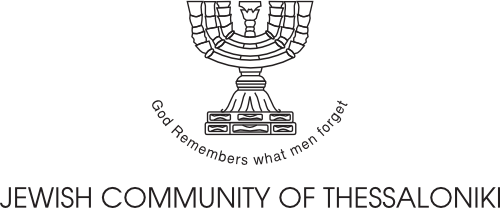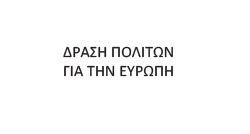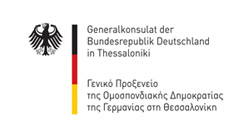More specifically, it aims:
- to offer these resources to teachers, to use them as additional teaching material, especially for history, language and literature classes, in the flexible zone, in projects, as well as for school celebrations,
- to encourage students’ understanding and appreciation of the historical, cultural and financial facts through the study of the available resources (witness accounts, archives, videos),
- to help students develop a broader understanding of history through the use of a variety of multimodal texts (videos, personal narrations, monuments),
- to help students appreciate peace and the world’s contribution to establishing it in post-war Germany following World War II (German reparations, public admission of guilt, Holocaust Memorial Day).
- Violence against civilian populations during World War II: martyred villages.
- Children and everyday life during World War II.
- The Holocaust: life before it and the personal accounts of the survivors. These three scenarios employ and implement History, Local History and “micro-histories”.
- World War II sites-monuments-museums. This scenario concerns evidence from the past and employs Archaeology, Museum Studies and Pedagogy.
- Children’s voices during World War II and the Holocaust. In this scenario, literature is combined with History, music, cinema…
The teaching scenarios are cross-curricular, in the sense that a number of scientific fields contribute to this approach, which employs resources from various fields and sectors: Science of History, Oral and Local History, Philology, Hebrew Studies, Archaeology, Museum Education, Cultural Studies and Pedagogy. We hope that this creative fusion facilitates the study of the issues at hand, which are not only complex but also philosophically controversial and irrational.
Our main pedagogical aim is to bring History and stories, historical sites, the horror of WWII, art, literature, music, film to light for the eyes of visitors with no prior knowledge. The language and the approach used are simple and coherent without becoming unscientific.
The five units are interactive, as they focus on relevant issues and are often based on common bibliography. Above all, they express our common belief in the usefulness of an anthropocentric perception of history. The juxtaposition of all these small stories and the identification of visitors with real people who lived, suffered, took action and left their trace in history are much more convincing than the conventional scientific historical narrative.
The study material offered is multilevel and graded from the smallest and easiest to the most challenging. We can picture it as a number of concentric circles, and each visitor, according to their personal interests, may focus and delve on any one of them.
The units discuss sensitive issues, anyway, and this cannot be ignored when used in the classroom. BUT, we do not wish to bring back the past, we wish to creatively contemplate it. Our wish is not to divide, but to bring together. Mourning reaches an end at some point and the wounds could heal if and when calm discussion and reflection take the place of sterile confrontation. Greece has lost hundreds of thousands of people in the Second World War, as well as many resources. The fratricidal civil war divided the country in two. Only in Athens 150.000 people died during World War II from starvation. In Thessaloniki the Jewish population was decimated (50.000 people).
It is time to set the scene for reconciliation with history, with favourable conditions for the historical truth, through reflection and deliberation, and not through the repression and concealment of history.
It has been said repeatedly, but let’s say it once again: war is always evil and there are no winners and losers. Especially in Europe, our “homeland”, it was humanism, democracy, culture and our optimism about the positive impact of knowledge on people that were defeated in World War II, apart of course from the 55.000.000 dead, the property damage, the trauma... We believe that the way in which Germany dealt and continues to deal with war crimes, wrongdoing and collective responsibility is exemplary for the overthrow of any hate ideology.
The visitors may wish to make comparisons: who hurt the most, who lost more? We must explain that there can be no comparisons as far as pain, loss and trauma are concerned.
In cases where the material is used in the classroom, we wish that the classroom serves as a chatroom, where students can pose questions about issues which are under debate even between scientists. We would like the class to be divided into groups and every student to assume responsibilities, however simple these may be. We would like for them to read, watch, listen, to “walk through”, to engage in debates, to create their own PowerPoint presentations, to conduct research online or in the local libraries, to take pictures, to put together collages…
It was our conscious decision to avoid the use of images depicting horrific and intimidating scenes. We believe that we are all exposed to more than enough of those on the television. For example, the pile of luggage from the Auschwitz Museum or the toys and the pile of shoes all imply the tragic loss of human lives without realistically depicting it. The music and short films chosen attempt to move the audience in a more subtle way.
Multimodality, which is the use of images, photography, works of art, music, cinema…, a valuable concept for the comprehension of all that is being studied, assumes a central role throughout the website and it is our wish that it is also implemented in the classroom.
This website could not have been created without the generous funding received from the German Embassy in Thessaloniki via Funds for the Future.






